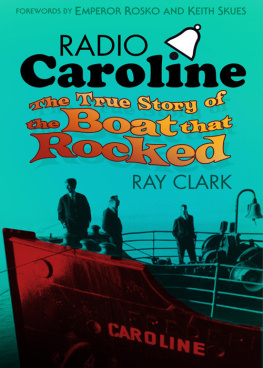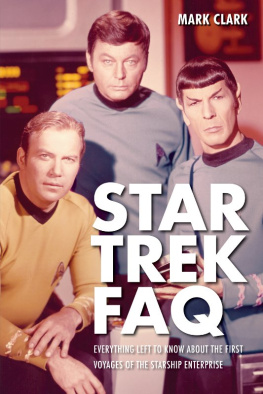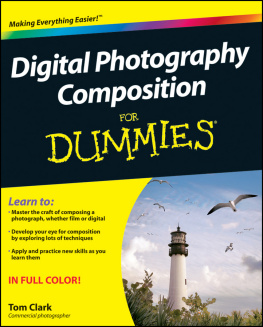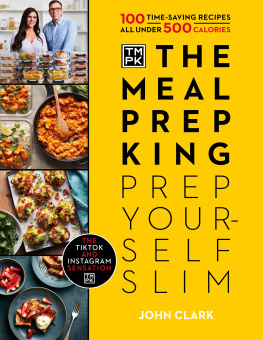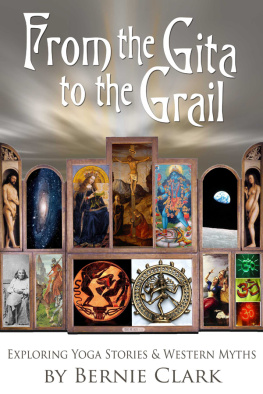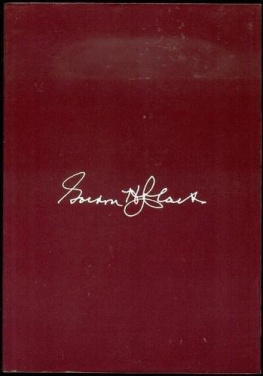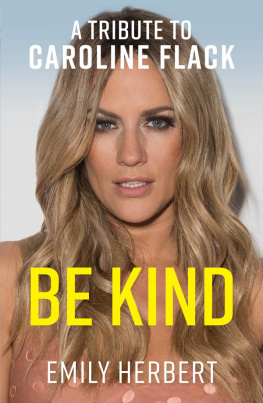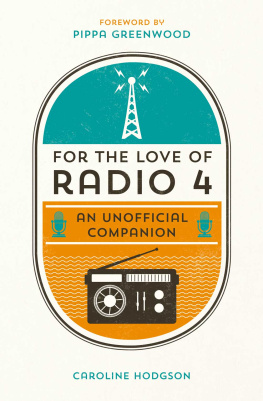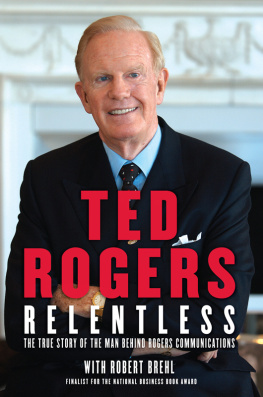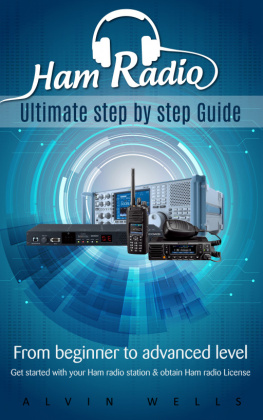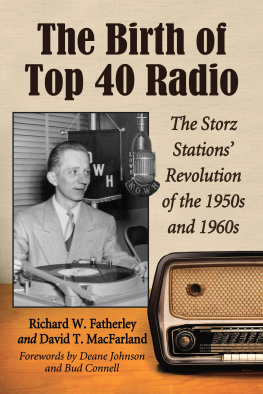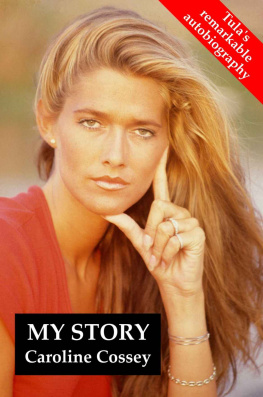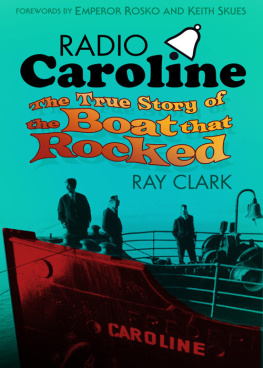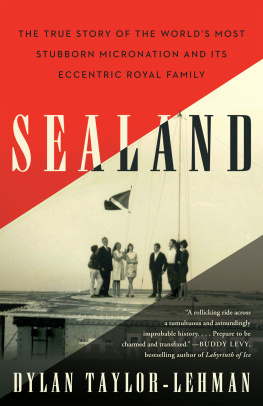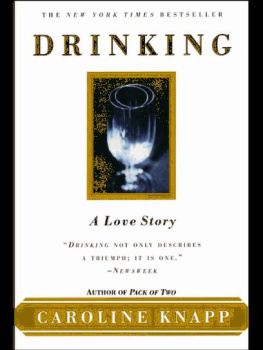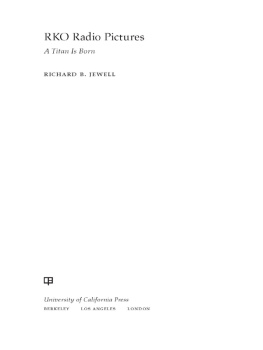
TO MY MUM AND DAD, THANK YOU FOR BUYING THAT TRANSISTOR RADIO JUST LOOK WHAT YOU STARTED. AND TO MY WIFE, SHELLEY, FOR HAVING TO SHARE HER LIFE, FOR TOO MUCH OF THE TIME, WITH THIS OTHER WOMAN CAROLINE.
Contents
E MPEROR R OSKO
I was utterly shocked and pleased that I was selected to say a few choice words to open this collection of pirate radio information, lovingly put together by my man Ray. We go back quite a long way and he had dozens that he could have asked.
All DJ foolishness aside, Ray knows more than enough to handle and coordinate the info on Radio Caroline (although he doesnt know about my night with a French journalist on board, but that is probably for the better, as she had wanted a real taste of pirate life )
Enjoy the read and keep the Jolly Roger flying!
Emperor Rosko, EMP, 2014
K EITH S KUES
My ambition as a schoolboy was to work for the BBC. However, having worked for eighteen months on Radio Caroline I wanted to see the introduction of commercial radio into Britain and I wanted to be a part of it. Fortunately I was lucky on both counts.
Radio Caroline was the centre of attraction in the Swinging Sixties and the first station that pop stars of the day would turn to in having their records played. Listeners loved the music and the DJs.
In turn Caroline helped to bring about the deregulation of British radio, with BBC Radio 1 and BBC local radio in the 1960s. A number of offshore DJs joined Radio 1 in 1967.
We had to wait until the 1970s for the introduction of independent (commercial) radio. Now listeners have a huge choice of stations to which they can listen.
Never in MY wildest dreams would I have envisaged we would be talking about pirate radio fifty years later.
Thank you Radio Caroline for helping me to achieve my ambition.
Keith Skues, 2014
My grateful thanks go to everyone who has contributed to this book with interviews, photographs and information. Very special thanks are due to Colin Nicol who had the foresight to interview a number of the key players from the early days of this amazing story, recording interviews before it was too late, and for allowing me access to his extensive collection of interviews and memorabilia. Chris Edwards and Francois Lhote of Offshore Echos have provided invaluable help, as have Hans Knot and Jon Myer. The following websites are essential browsing for anyone wanting even more information on the fascinating topic of offshore radio: www.offshoreechos.com, www.offshoreradio.co.uk, www.hansknot.com, www.radiolondon.co.uk
It has not been possible to contact everyone who has played a part in the Caroline story, so if this includes you please do not feel snubbed; I would love to include your story in any future edition of this book so please contact me at www.rayradio.co.uk.
Special thanks to Nigel Harris and Andy Archer for the use of extracts from their fine books.
Many of the photographs used within this book have kindly been provided by friends and used with their permission; others are from my own collection. I have tried to trace the original owners of the few remaining photographs, they are used for all the right reasons and for the story that they tell. However, if you have an interest in those please contact the publisher.
Special thanks to my friends, Bill Rollins, Hans van Dijk and Pete MacFarlane for encouraging my unhealthy interest in this topic and forcing me into a reasonably successful radio career.
Thank you to Lauren and the team at The History Press for your patience and for guiding me through this alien but exciting world of writing books.
Ray Clark enjoys a successful radio career, after achieving his dream of working aboard Radio Caroline in the Eighties. Since then he has been heard on a variety of commercial and BBC radio stations, together with regular appearances on Pittsburghs KDKA, the worlds oldest radio station.
He has presented, reported, documented and managed all aspects of radio successfully, collecting various Sony, BBC and International awards.
Throughout these years Ray has presented every programme at every hour of the day and night. Currently he presents the Ray Clark Breakfast Show for BBC Essex.
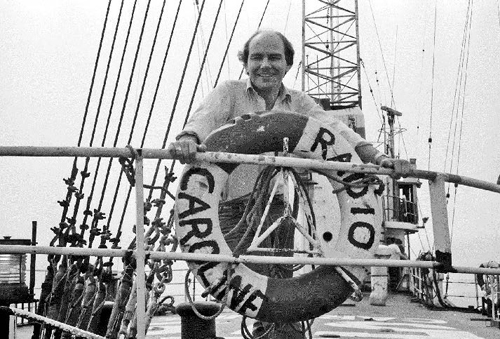
Those of a similar age to me will have grown up with memories of listening to Radio Caroline, either through the swinging Sixties, the psychedelic Seventies or the loadsa money Eighties. The music and those playing it and the conditions that they worked under certainly made an impression at the time. In many cases, that impression has been lasting.
My life has been influenced by much of what Ive heard on the radio: the music, the fun and what Caroline stood for.
Radio Caroline lit that spark in my imagination from the first time I heard it, Easter 1964. I have followed her ups and downs and stayed loyal for most of the time. There have been times when Caroline sounded so amazingly good that I found it difficult to turn the radio off; occasionally it was so bad that I only listened because it WAS Caroline most of the time though, it was good.
Radio Caroline was the worlds most famous pirate radio station, but did the thousands of us tuning in realise just what battles went on behind the scenes? Financed by respected city money men, this is a story of human endeavour and risk, international politics, business success and financial failures. A story of innovation, technical challenges, changing attitudes, unimaginable battles with nature, disasters, frustrations, challenging authority and the promotion of love and peace while, at times, harmony was far from evident behind the scenes.
For one person to tell the full Radio Caroline story would be impossible, but in the pages that follow you will read the inside story of much that happened during Carolines days at sea, including previously unpublished interviews with the pirates who were there and featuring many rare photographs.
Of course there is plenty that will never be written there were just so many adventurous, funny, frightening, happy, sad, dangerous, ridiculous, stupid, frustrating and unbelievable events that will be remembered only by those that were involved at the time. Ive been lucky enough to have heard many of these stories from those who were there.
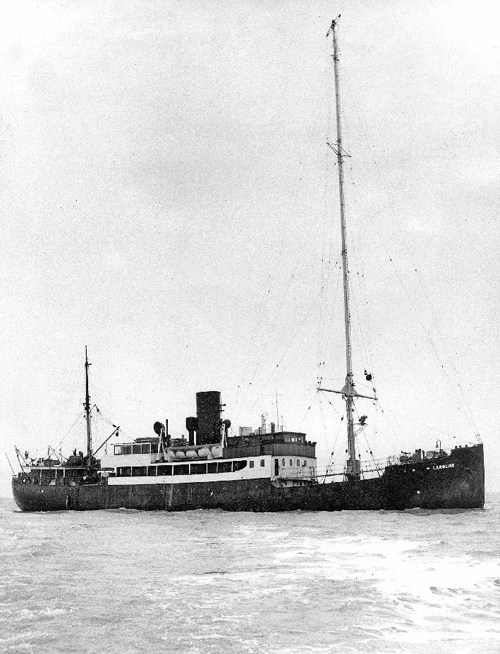
Radio Caroline off Felixstowe, April 1964. (David Kindred)
The aim of this book is to put on record a very special time that was enjoyed by so many people. As in all organisations there are those whose company you enjoy and whose attitudes, beliefs and standards are in-line with your own, and there are others with differing social skills. Those that have allowed me to interview them have all been courteous and patient many of them I count as my friends and a few, I hope, will remain lifelong friends.
I see this story as a record of a battle between young people wanting to challenge and provide an alternative to a heavily regulated system of radio, those just wanting to be involved in something different, determined businessmen and equally determined politicians. I leave you to decide who the good guys and the bad guys were.
This is the captivating story of the boat that rocked and a story that I am proud to have played a tiny part in.
***
Fifty years ago we listened to Caroline through an earpiece connected to a small hand-held transistor radio made in the Far East. Today you can still listen to Caroline via an App through an earpiece connected to a small hand-held telephone made in the Far East: www.radiocaroline.co.uk. Caroline continues
Next page
